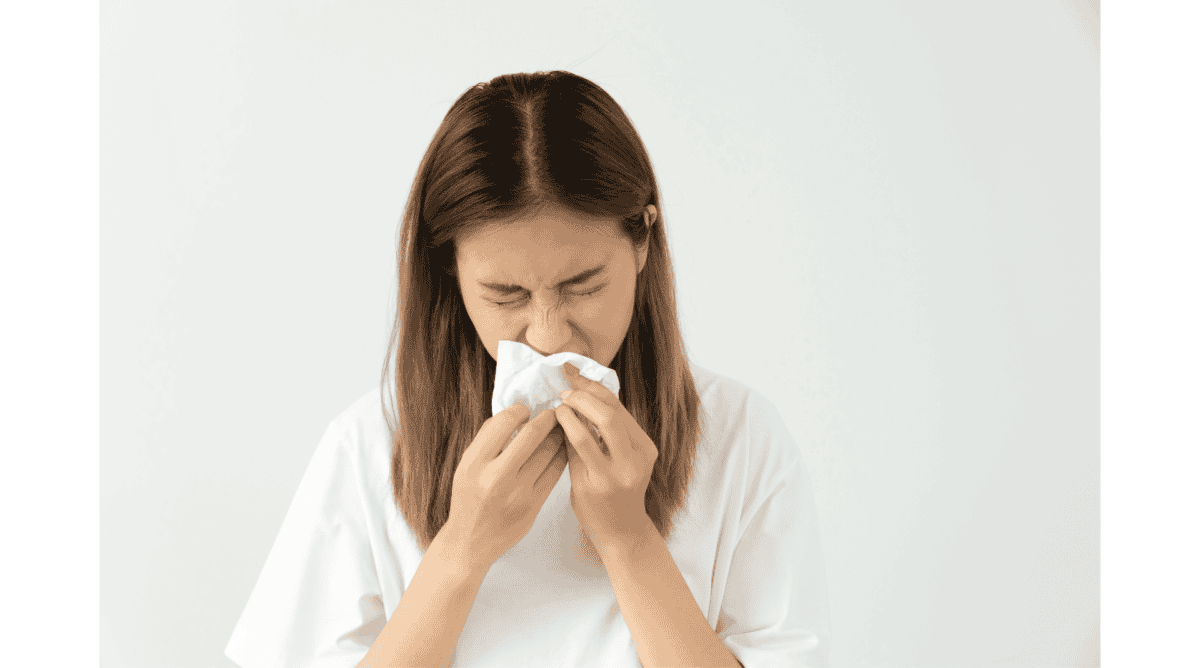Summer is here! Along with the warmer weather, we also see an increase in pollen and other allergens that can wreak havoc on our sinuses and respiratory systems. While most people associate allergies with symptoms like sneezing, itching, and congestion, few realize that allergies can also impact hearing health.
From ear congestion to sinus pressure, summer allergies can exacerbate existing hearing issues and even lead to temporary changes in hearing function. You can watch for common symptoms and follow a few practical tips for managing summertime allergies.
Understanding the Impact of Summer Allergies on Hearing
Summer allergies, often triggered by pollen from trees, grasses, and weeds, can affect the ears and hearing in several ways:
- Ear Congestion: Allergies can cause inflammation and congestion in the Eustachian tubes, which connect the middle ear to the back of the nose and throat. This congestion can lead to feelings of fullness or pressure in the ears, impacting hearing function.
- Fluid Buildup: In some cases, allergies may cause fluid to accumulate in the middle ear, a condition known as otitis media with effusion (OME). This fluid buildup can affect the movement of the eardrum and middle ear bones, resulting in hearing loss or muffled hearing.
- Tinnitus: Allergies may exacerbate symptoms of tinnitus, a condition characterized by ringing, buzzing, or other phantom sounds in the ears. Increased congestion and pressure in the ears can worsen existing tinnitus or trigger new episodes.
- Vertigo: For individuals with allergies and underlying vestibular issues, such as Meniere’s disease, allergies can exacerbate symptoms of vertigo, dizziness, and balance problems. This will also affect overall auditory function.
Recognizing Common Symptoms
It’s important to recognize the common symptoms of summer allergies and their potential impact on hearing health:
- Ear Fullness: Feeling of fullness or pressure in the ears, similar to the sensation experienced during changes in altitude.
- Muffled Hearing: Difficulty hearing or a sense that sounds are muffled or distorted, particularly in noisy environments.
- Tinnitus Flare-Ups: Increased intensity or frequency of tinnitus symptoms, such as ringing or buzzing sounds in the ears.
- Dizziness or Vertigo: Episodes of dizziness, lightheadedness, or a spinning sensation, especially when changing positions or during sudden movements.
Practical Tips for Managing Summer Allergies
To minimize the impact of summer allergies on hearing health, consider the following tips:
Allergy Management
Work with an allergist to identify specific allergens that trigger your symptoms and develop a personalized allergy management plan. Take over-the-counter or prescription allergy medications, such as antihistamines or nasal corticosteroids, as recommended by your healthcare provider to alleviate symptoms and reduce inflammation. Your healthcare provider may also recommend allergen immunotherapy (allergy shots) to desensitize your immune system to specific allergens and reduce the severity of allergic reactions over time.
Nose Care
Use saline nasal sprays or sinus rinses to flush out allergens and mucus from the nasal passages, promoting sinus drainage and relieving congestion. Enjoy steam inhalation or take hot showers to help open up the nasal passages and alleviate congestion. Be cautious to avoid scalding temperatures that could damage sensitive skin or tissues.
Environmental Control
You can use high-efficiency particulate air (HEPA) filters in your home HVAC system or try a portable air purifier to remove allergens from indoor air and improve air quality. If you have summer allergies, limit outdoor activities during peak pollen times. Keep windows and doors closed to prevent allergens from entering your home, and shower and change clothes after spending time outdoors to remove pollen from your skin and clothing.
Hearing Protection
Watch for any changes in hearing function or worsening of existing hearing issues during allergy season. If you experience persistent or severe symptoms, consult with a hearing health specialist for evaluation and treatment.
If you’re prone to ear congestion or fluid buildup, consider wearing earplugs during outdoor activities or in environments with high allergen exposure. This can prevent moisture and allergens from entering the ears.
Hydration and Nutrition
Did you know that hydration and nutrition can impact your hearing health? Drink plenty of water throughout the day to stay hydrated and help thin mucus secretions, facilitating sinus drainage and relieving congestion. Incorporate anti-inflammatory foods into your diet, such as fruits, vegetables, fatty fish, and nuts, to support immune function and reduce inflammation associated with allergies.
Navigating Summer Allergies and Hearing Health
Summer allergies can present challenges for individuals with hearing issues but you can minimize their impact and preserve your hearing health throughout the season. Visit us today for ongoing support with your hearing health.


